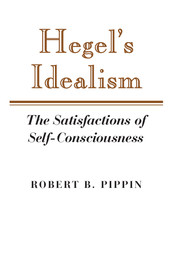4 - The Jena formulations
Published online by Cambridge University Press: 05 June 2012
Summary
Schelling and the Jena writings
Although there has always been a good deal of scholarly interest in Hegel's early historical, theological, and political essays, most commentators agree that Hegel began to develop his own philosophical position after his move to Jena in January 1801. To be sure, throughout the work of the Jena years (1801–7), Hegel continued to develop his sociopolitical philosophy and the reflections on art and religion central to his approach to society, but what makes such essays as the “Natural Law,” “System of Ethical Life,” and “Philosophy of Spirit” particularly interesting is that they reveal the way in which Hegel's developing position on speculative philosophy altered the approach, terminology, and content of his “Realphilosophie.”
These developments in Hegel's speculative position first became visible in two articles written for the journal that Hegel briefly coedited with Schelling, Critical Journal of Philosophy – the so-called “Difference” essay, “The Difference between Fichte's and Schelling's System of Philosophy” (1801) and “Faith and Knowledge: Or the Reflective Philosophy of Subjectivity in the Complete Range of Its Forms as Kantian, Jacobian, and Fichtean Philosophy” (1802) – and in a variety of lectures, particularly those written after 1804–5, on logic, metaphysics, philosophy of nature, and philosophy of spirit. What makes these works important, particularly for the approach taken here, is that they set out what will be central aspects of Hegel's final position in ways that are directly connected with those of his predecessors.
- Type
- Chapter
- Information
- Hegel's IdealismThe Satisfactions of Self-Consciousness, pp. 60 - 88Publisher: Cambridge University PressPrint publication year: 1989



